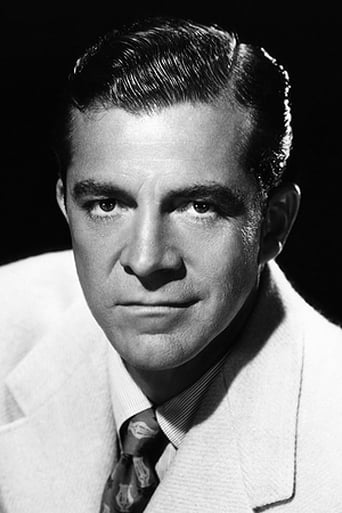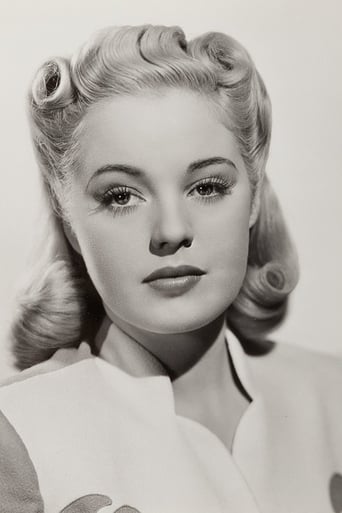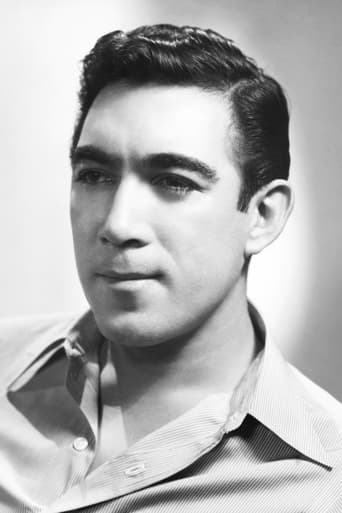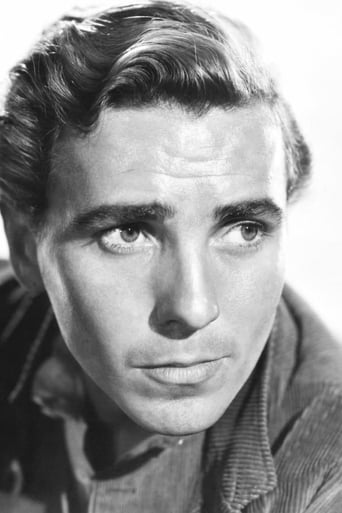Diagonaldi
Very well executed
ScoobyMint
Disappointment for a huge fan!
Pjtaylor-96-138044
'The Ox-Bow Incident (1943)' isn't your traditional western. Instead, it's more 'western-noir', aiming for, and often achieving, a kind of moral ambiguity seldom seen in films of any age (never-mind one from the early 1940s). It's a bleak, unflinching morality play with a large ensemble cast who all turn in excellent performances and cement the feeling that this small story was one that happened somewhere to someone some time ago. In fact, it probably happened thousands of times. This was just a film trying to stop it from happening again, in our time. It features a haunting and powerful ending that truly sticks with you long after it successfully makes its poignant point. A truly unexpected, harrowing and moving picture. 8/10
JLRVancouver
A Western by time and place only, the Oxbow Incident is universal cautionary tale about the temptation and dangers of mob justice. A popular man is reported dead and a mob promptly gathers with the goal of bringing the killer to justice. Unwilling to wait for the sheriff, and therefore due process, the mob sets out and the bulk of the film is about what happens when they find the potential killers. Fonda and Morgan play a couple of cowpokes who join the mob because not to do so might arouse suspicion that they are the killers. A couple of other men join in the hope of preventing a potential lynching, perhaps one person rides out because he is truly 'bad', but for the most part the mob are people caught up in the excitement of the hunt and the promise of swift justice. The message that a person is innocent until proven guilty and that suspicions, allegations, accusations or, hear-say are not sufficient bases to pass judgement, is as true now when they are spread on-line as it was when they were spread on horseback. Interesting that the film was made in 1943, when due process was often put aside in the name of war-time 'necessity'.
jawlaw
The Western Genre has produced many good and bad films, but occasionally a western rises up above shoot-outs and "saloon fights" to make a wonderful statement. Like "High Noon" and "Shane," "The Ox Bow Incident" is not just a battle between "white hats and black hats" or "Cowboys and Indians." Every so often a western comes along that moves past the genre in a profound way. "The Ox Bow Incident" is such a movie. This writer is an attorney, who is frequently asked "Why even give a murderer who is obviously guilty a trial, why not just execute them." I always respond, "Rent 'The Ox Bow Incident' and you will never ask such a question again." Dana Andrews and company, in this film, have purchased cattle from a man, and are overtaken by a posse looking for the man's murderer. What follows is a gripping two hours of intrigue between those that want quick justice, and those that are willing to let the law take its course. Every performance is very good, and this may be the greatest acting performance for Dana Andrews' career. Without giving you away any spoilers, suffice it to say that this is a tale about how good, indifferent, and bad men view and seek that thing which we call "justice."
sharky_55
We expect something when Henry Fonda, darling of Hollywood, strides into a bar in the west, weary, weathered but eyes alert and focused. A fight, or an argument, or a shootout perhaps. And we also expect him to win it, because, well, he's Henry Fonda. His Gil Carter is not as intimidating as say, his Wyatt Earp, but nevertheless he still has the presence of the leading man, the protagonist, the one who will shake up the small town and its inhabitants. But here is a film that goes against that narrative - he is not the invincible figure who can overcome all odds, and for once the strange powers of mob justice overwhelm everything else. Gil and his companion Art in fact join the posse because they are new in town and drawing lurking, suspicious glances from the folk - what better way to draw attention away from themselves than to take part in their own sport? The film portrays that dangerous allure that can drive mobs to do things that individuals could never even think of doing. Innocents and the naive are dragged along with them, or else for fear of not fitting in, being cast aside, being viewed as weak - as the mayor's son sees himself as. But they don't go about it chaotically. The scariest thing is that it evolves in a way that seems also consequential. The sheriff is missing, so the deputy steps up, and swears to uphold the mob's democratic 'justice'. When they catch their suspects, all the evidence seems to point to them, and the only witness who can prove their story is conveniently dead. At a mere 75 minutes it does not ever drag to that eventual conclusion (with the exception of a rather tame encounter with an ex- girlfriend of Gil's). Slowly, Trotti takes away our hope of the group ever getting a fair trial and justice. Dana Andrews' Donald Martin sells this increasing desperation. It is clear from the very foremost discovery that he is not a murderer or a thief - but no matter how well spoken and passionate he is the mob is not swayed. Indeed, as his most eloquent words are heard he is already dead, but his character shines through. As Fonda gives a stirring rendition of the misplaced morals and justice that has lead to his untimely death, Wellman pans across the bar to all the regretful participants. These events will not leave their eyes for a long time. Funny too, when movie goers don't expect a coward, but then are made to desperately want all these men to be so.





